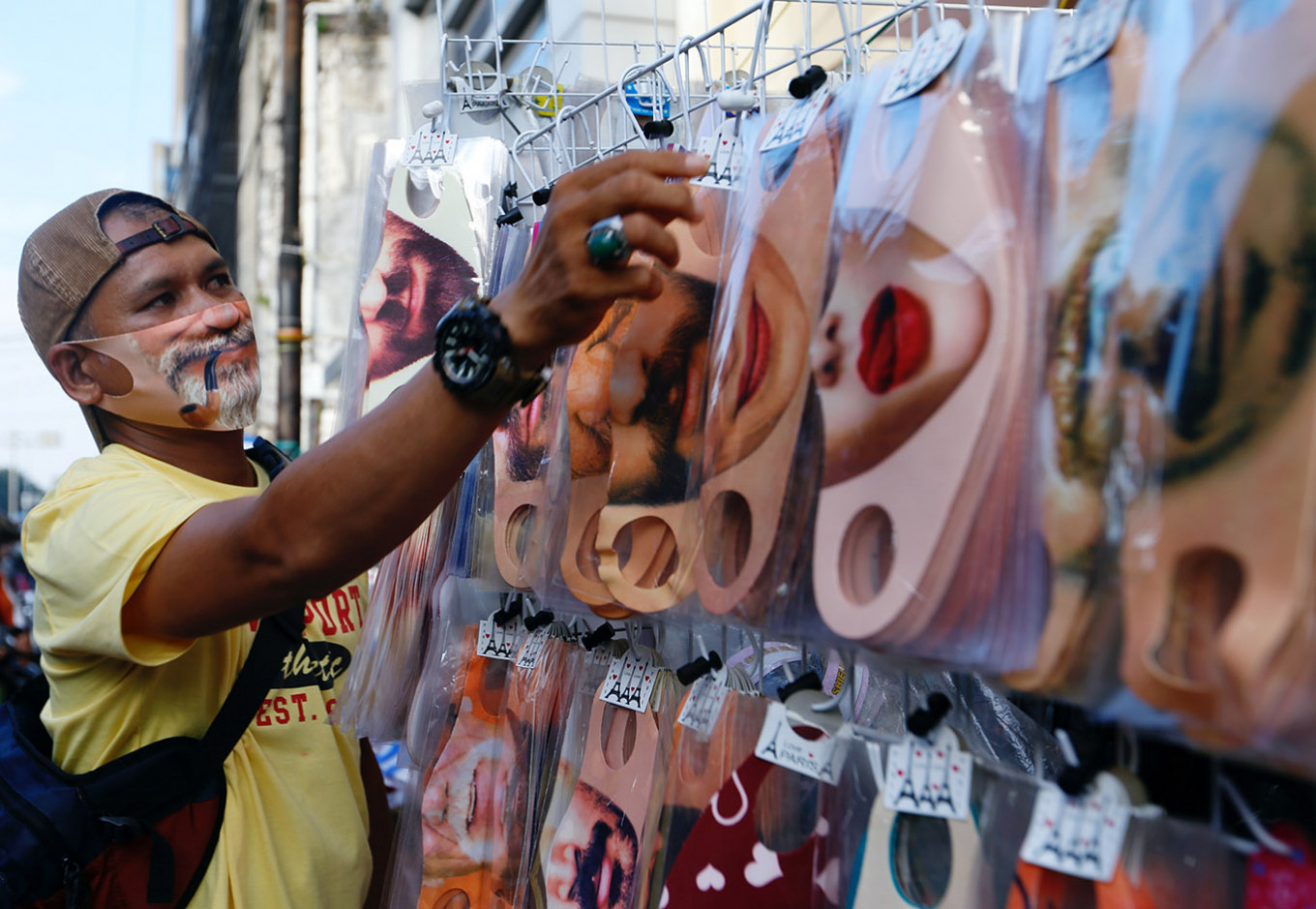Popular Reads
Top Results
Can't find what you're looking for?
View all search resultsPopular Reads
Top Results
Can't find what you're looking for?
View all search resultsDanger in crowds
But a surge in cases over the past week has shown that the capital has yet to get a grip on the virus, and crowds caused by the reopening may have contributed to the infection spike.
Change text size
Gift Premium Articles
to Anyone
I
t is indeed a battle the country can hardly win. Even though the enforcement of large-scale social restrictions (PSBB) has been far from consistent, the government and local administrations have marched into reopening public life to prevent further economic losses.
And that is proving to be a failure, even for Jakarta, which had successfully curbed virus transmission for weeks. The capital’s dense population and poor implementation of health protocol have become major hurdles for the reopening.
Jakarta, which had been hardest hit by the outbreak, managed to slow the virus reproduction rate, leading to its decision last month to gradually reopen offices and business centers. But a surge in cases over the past week has shown that the capital has yet to get a grip on the virus, and crowds caused by the reopening may have contributed to the infection spike.
As of Monday, Jakarta has recorded 14,797 cases with 697 deaths and 9,408 recoveries, making it the hardest-hit province after East Java.
Governor Anies Baswedan said the share of people testing positive had doubled to 10.5 percent of the total number of people tested. The largest clusters come from hospitals, which accounted for about 45 percent of the cases, followed by local communities at 38 percent, while the rest came from traditional markets, migrant workers and offices.
The significant rise in local communities has been discovered because public health centers (Puskesmas) have upped testing in residential areas, including the densely populated kampungs. Many of those who tested positive did not show any symptoms and would not have known about their status had the health officials not come to them.
But mass testing does not adequately explain Jakarta’s drastic surge in infections.
Unlike the central government, Anies said failure to practice physical distancing in public transportation and other public places was also to blame.
He urged people to be cautious in public transportation and at traditional markets and to heed health protocol by wearing face masks, keeping a distance from others and frequently washing one’s hands with soap. If virus transmission remains difficult to control, reinstatement of PSBB is a logical option.
In the country with the fourth-largest population worldwide, crowds are a major problem in the transition to the so-called new normal. Several countries with large populations are failing to strictly implement health protocol.
Records from Johns Hopkins University show that the United States, the third-most populous country, is now the nation most battered by the coronavirus, with 3.3 million cases and 135,000 deaths. Brazil, the seventh-most-populous country, has taken the second-hardest blow with 1.8 million cases and 72,000 deaths. India, the second-most populous nation, is in third spot with 878,000 cases and 23,000 deaths.
It is very easy to blame people for not following health protocol, but it is best that governments, including in Indonesia, improve access to health and safety measures for people who may neglect the protocol.
It is best to never take for granted that people can take care of themselves or the notion of herd immunity. This is going to be a long journey, and none of us know how it ends.










